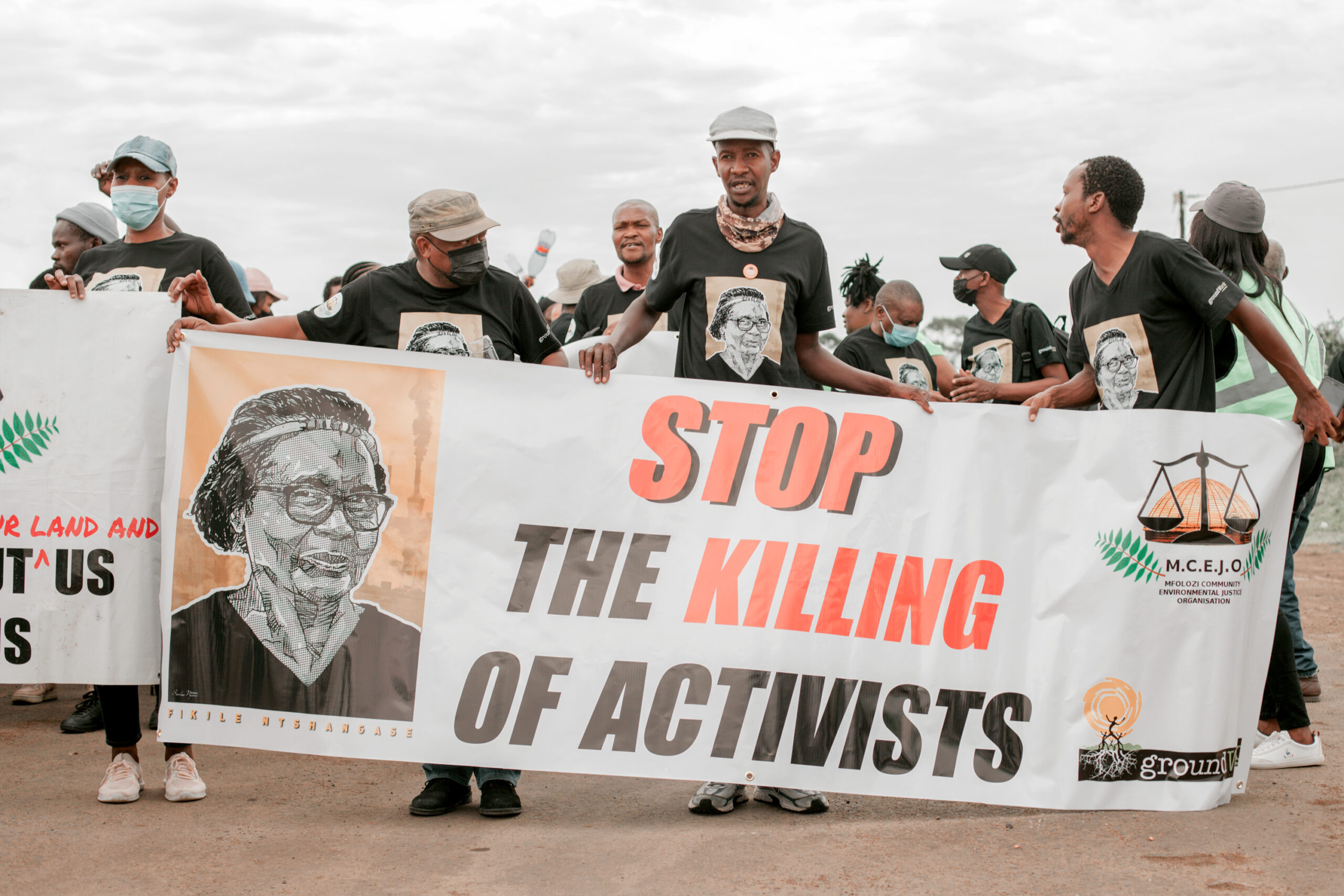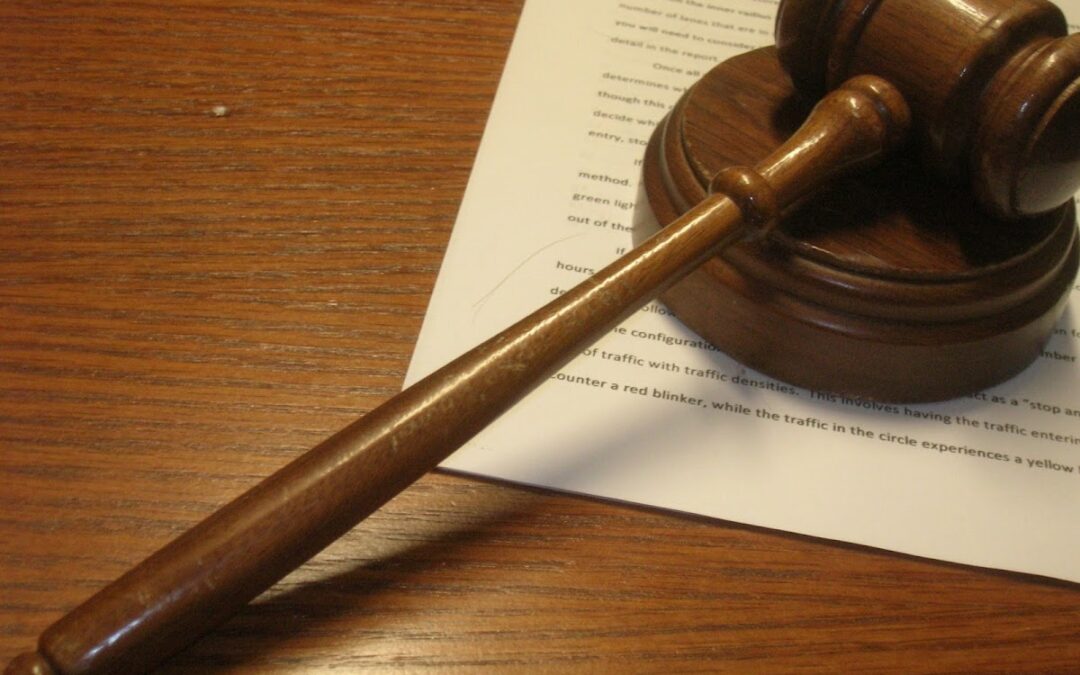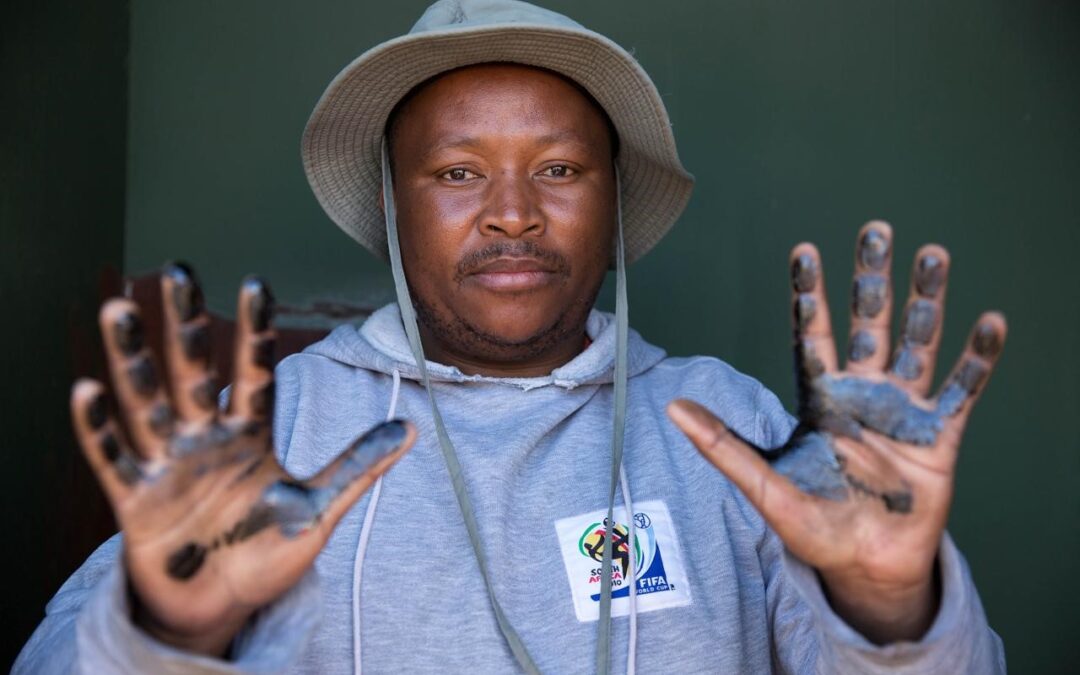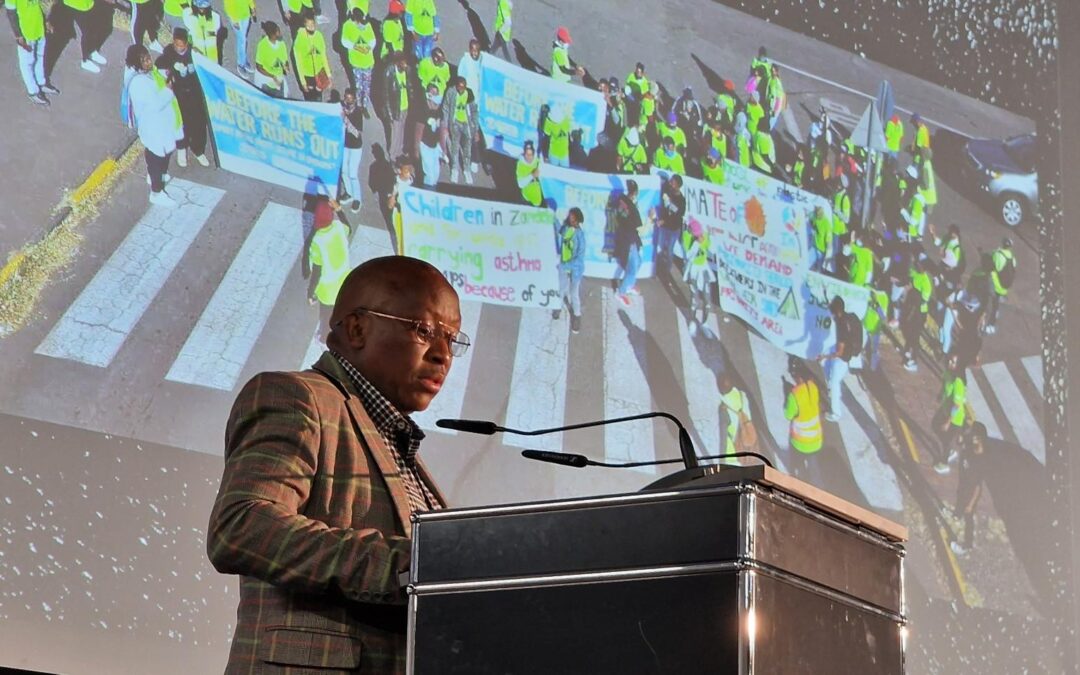
Activists call on the United Nations Human Rights Council to protect human rights defenders
Durban, KwaZulu-Natal, South Africa. 20 October 2022. Today groundWork and partner organisations wrote a letter to Dr Naledi Pandor, a newly elected member of the Human Rights Council at the United Nations, requesting her to intervene in the scourge of human rights abuse in South Africa, where the killing of activists is not being addressed and the government is failing to protect them.
Community formations and civil society organisations around the country are gathering in Somkhele to demand justice for the brutal murder of Fikile Ntshangase. On Friday, 21 October 2022, they will stage a protest outside the KwaMsane Police Station in Mtubatuba, in northern KwaZulu-Natal. They will be there to demand justice for Ntshangase and for meaningful progress into the investigation of her murder, and also call upon the KZN Police Commissioner to protect all environmental activists – discord is brewing in other mining affected communities, such as Newcastle, where activists continue to receive threats for opposing the Ikwezi coal mine.
It is already more than two years since Fikile Ntshangase was gunned down in October 2020 by four men, in her home, in front of her 13-year-old nephew, and her killers still have not been arrested. She was killed while opposing the expansion of the Somkhele coal mine, owned by Petmin (Pty) Ltd, and probably because of her steadfast opposition to this expansion.
Fikile Ntshangase was the deputy chairperson of the Mfolozi Community Environmental Justice Organisation (MCEJO) a community-based organisation representing the communities of Somkhele and Fuleni. The communities were negotiating to protect their environmental rights, which were being violated by the coal mining development. She was firmly against expansion of the coal mine on the basis that the community had been living on the land for many years and had enjoyed the benefits of food from their land, while undisturbed. A few days before she died Ntshangase had called her colleagues and informed them that she was aware that people wanted to silence her, permanently, and she was afraid.
In October last year, groundWork sent a letter to President Cyril Ramaphosa seeking his intervention in this matter, and his assurance that justice would be realised for the Ntshangase family, and many others who have been affected by the killing of Ntshangase.
A similar attack occurred in March 2016, when Sikhosiphi ‘Bazooka’ Radebe (51) was gunned down and killed outside his home in the Lurholweni township in Bizana, in the Eastern Cape, in front of his teenage son. The murder allegedly was committed by two men dressed as officers of the South African Police Service (SAPS). Bazooka was the chairperson of the Amadiba Crisis Committee, a community-based organisation campaigning against the proposed titanium mine in the area, by the Australian company MRC. To date no one has yet been arrested.
Abahlali BaseMjondo is a community organisation dealing with land, housing and other social justice issues which affect shack dwellers throughout the country. The organisation has lost 24 of its members – shot and killed – since 2009. Only two of the twenty-four activists have received justice through the arrest and sentencing of the killers.
In March 2021, in Newcastle, people were protesting peacefully against the Ikwezi coal mine for its failure to address the negative impacts of its operations. Police officers shot at the peaceful protestors, beat them up, arrested them, and they were forced to spend three nights behind bars. That same month the victims opened a case against the police officers, for them to be charged for assault with an intention to cause grievous bodily harm through the application of excessive force – but still, today, none of the officers have been held accountable.
In 2018, a collaborative research project titled We Know Our Lives are in Danger was conducted in mining affected communities in South Africa, by groundWork, Earthjustice, the Centre for Environmental Justice (CER) and Human Rights Watch (HRW). The research project was aimed to document the threats and intimidation directed at social justice activists. The outcome confirmed that activists were indeed receiving death threats, and being intimidated, simply for taking a stand against mining corporates. This research also established that despite being aware that they had been targeted, activists remained resolute that they would die protecting their land, livelihoods and communities, rather than give in to the overbearing brutality of mining corporations.
These attacks on environmental activists and human rights defenders are a direct attack on our democracy and the constitution. The government of South Africa is failing to protect poor people who are challenging this corporate bullying. This is a clear indication that poor people have fewer rights than others, under the same constitution.
[Ends]
For media enquiries contact:
Tsepang Molefe | +27 74 405 1257 |
Robby Mokgalaka | +27 73 774 3362 |



